We are happy to share with you (here!) video documentation of this intense and cross-pollinating symposium with 25 speakers across two days – an open dialogue amongst various artists, scholars, educators, citizens, academic activists, and journalists.
Tune in to this conversation on uncertainty, response-ability, and humankind in the age of the Anthropocene, and see if the new humanities’ cultivation of attentiveness, curiosity, care, concern, and critique can do something for you, co-existentially with others.
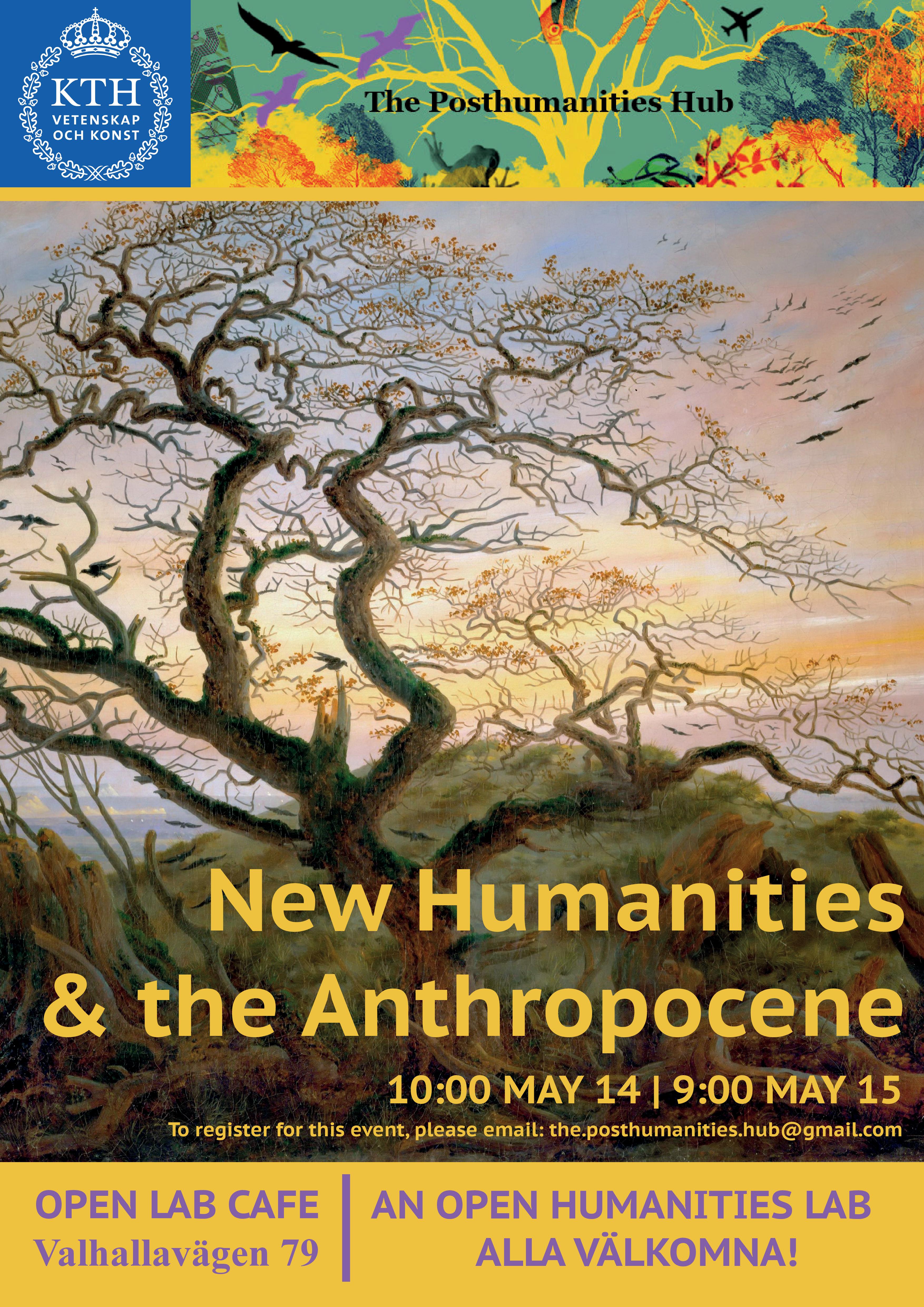
14-15 May 2019
KTH Royal Institute of Technology, Stockholm, SE
OVERVIEW OF ONLINE FILMS [scroll down to view]:
* Keynote and Q&A – Hayden Lorimer – (58 min)
* Critical Intervention – Christine Daigle – (10 min)
* Panel 1 – Sverker Sörlin, KTH, SE, Christina Fredengren, Stockholm University, SE, Hélène Frichot, KTH, SE, Hayden Lorimer, University of Glasgow, UK, Hayden Lorimer, Glasgow University, UK – (53 min)
* Panel 2 – Margrit Shildrick, Stockholm University, SE, Marco Armiero, KTH, SE, Adam Wickberg, KTH, SE, mirko nikolić, independent artist, SE/FI, Marietta Radomska, Linköping University, SE/University of Helsinki, FI, Janna Holmstedt, KTH, SE, Myra Hird, Queen’s University, CA – (1 h 35 min)
* Panel 3 – Matthew Fuller, Goldsmiths, UK, Lotten Wiklund, journalist and science communicator, SE, Amanda Lagerkvist, Uppsala University, SE, Lina Rahm, Linköping University, SE, Katja Aglert, independent artist and researcher, SE, Jesper Olsson, Linköping University, SE – (1 h)
* Keynote and Q&A – Norie Neumark – (1 h)
* Critical Intervention – Rosi Braidotti – (18 min)
* Panel 4 – Nina Lykke, Linköping University, SE, Daniel Urey, Färgfabriken, SE, Tara Mehrabi, Karlstad University, SE, Lauren LaFauci, Linköping University, SE, Cecilia Åsberg, KTH, SE/Linköping University, SE, Norie Neumark, Melbourne University, AU – (1 h 23 min)
Introduction by Cecilia Åsberg and Marietta Radomska – Uncertainty, Response-Ability and Humankind
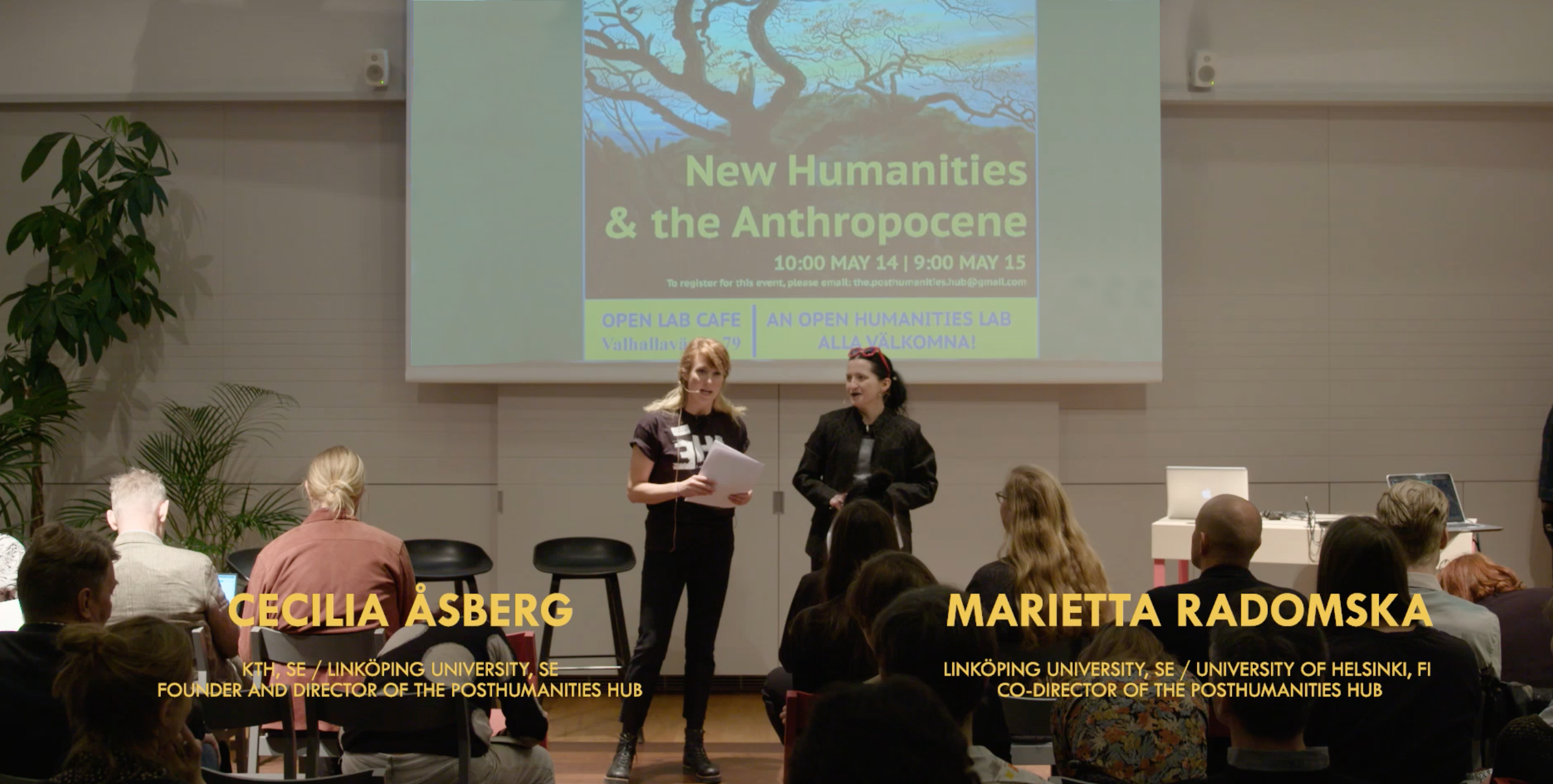
Welcome all!
Now, the environment is in us, and we humans are fully in the environment: that much is clear in this new planetary era of uncertainty some call the Anthropocene. This new geological period, the environmental ‘Age of Man’, is often defined by unparalleled human disturbances of the Earth’s ecosystems, climate, and biodiversity. Almost half of the wildlife on Earth has been lost in the past forty years. Perhaps we will soon, in contrast, have spawned more transgenic organisms, synthetic biological systems, hybrid creatures or artificial intelligences than we ever asked for by way of science and technology? Calling all of this climate change is an understatement! In order to take action, equitable and fair environmental action, we now need to deal with some hard issues. To do right we need to think right, and that means rethinking our basic assumptions about what gets to count as nature and who gets to count as human.
Nature first; in the age of the Anthropocene, humans have become the most all-encompassing ‘force of nature’, making the old idea of nature (as something human-free) – in its classical sense – over. We live in a postnatural world now, and have to, frankly, deal with it for survival in the long run. Second, not all humans have the same power to effectuate all these transformations. Even if we all are involved, one way or another, we are not the same. So the Anthropocene discourse also makes it clear that the universalized idea of the human, the “anthropos” of the Anthropocene, is also in bad need of revision with regard to enormous power differences. The old idea of Universal Man in its classical and imagined sense of a bounded and non-contextual individual, safely zipped up in a white skin of his own, the maker of civilization and societal progress, was until recently also the human of the humanities. Now, these cases of mistaken identity seems now down-right detrimental to our planetary existence.
To paraphrase the KTH-tote bag, the future is too important to be left to men, an impossible Man anyways (one, not even most embodied men feel comfortable with). And nature, for good and for bad, is not just a passive backdrop: it is us too, and so much more than us. History shows us, past ideas of what gets to count as natural (and thus “right”), and what gets to count as the proper human (subject and object) of the humanities, followed tightly on societal convention, gendered and racialized norms and period morals rather than actual lived realities. Knowledge is power. Now we cannot afford making these mistakes again. We need more-than-human humanities, not simply for all those groups of people regarded as less-than-human, or not previously conceived of as human-enough to merit citizen status, knowledge, and a voice, but for the nonhumans (nonhuman animals, technobodies, plants, oceans, and whole ecosystems) too. If we are to take just environmental action, we need to ask ourselves some really hard questions and rethink basic assumptions about nature and about the human, and the long-term effects of these two ideas. Today too, perhaps more than ever, the ideas behind our actions will shape our co-existence on this planet for a long time. Rethinking time is now.
Good thing we still have the analytical skill sets of the humanities, and its interdisciplinary expertise on the assumptions behind our actions (even if its resources are small compared to that of other areas of research). Better still, we have art, science, committed citizens, and new humanities, like multispecies and environmental humanities, and posthumanities that not just critique old ways but also co-create new relationships by refusing to uphold the classical divides between science and art, nature and culture, people and knowledge.
This is an event that will bear witness to the exciting emergences and convergences of such reinvented, more inclusive, thought and action. Responding to present societal challenges we ask with this event: – How can the humanities accommodate the transformations associated with advances in science, technology, medicine, with the Anthropocene and the ‘great acceleration’ of planetary damage following on ’progress’ and ‘growth’? Is there a solidarity in our precarious diversity as we now all have to learn to live with the wounds of the world, to live on a damaged planet? Can we, like Timothy Morton, even re-imagine kindness in its human and more-than-human sense? How can the new humanities, like environmental humanities, feminist bio-philosophy, or media ecologies research, respond to the challenges of the Anthropocene? Can the new humanities, transformative and integrative in nature, become not just relevant to society but also enact real change? In one succinct question that underlines postdisciplinarity (since reality does not abide by our disciplinary divides): Can we have various forms of humanities, as Rosi Braidotti puts it, that are ‘worthy of our times’?
Warmly welcome to an open dialogue amongst various artists, scholars, educators, citizens, academic activists, and journalists, a symposium where we break bread together in public and forge new brave alliances in the face of the unexpected!
This event is brought to you by The Posthumanities Hub, a research group and a platform for bringing science to the humanities, and more-than-human humanities to the people. The event is funded by The Seed Box (Mistra and Formas) and the Division of Historical Studies of Science, Technology and Environment at KTH.
14 May, 2019, 10:00-17:00
Welcome
Cecilia Åsberg, KTH, SE/Linköping University, SE & Marietta Radomska, Linköping University, SE/University of Helsinki, FI.
Keynote and Q&A
Hayden Lorimer, University of Glasgow, UK
Companion Culture and Coastal Change – A Seaside Story
Moderator: Cecilia Åsberg
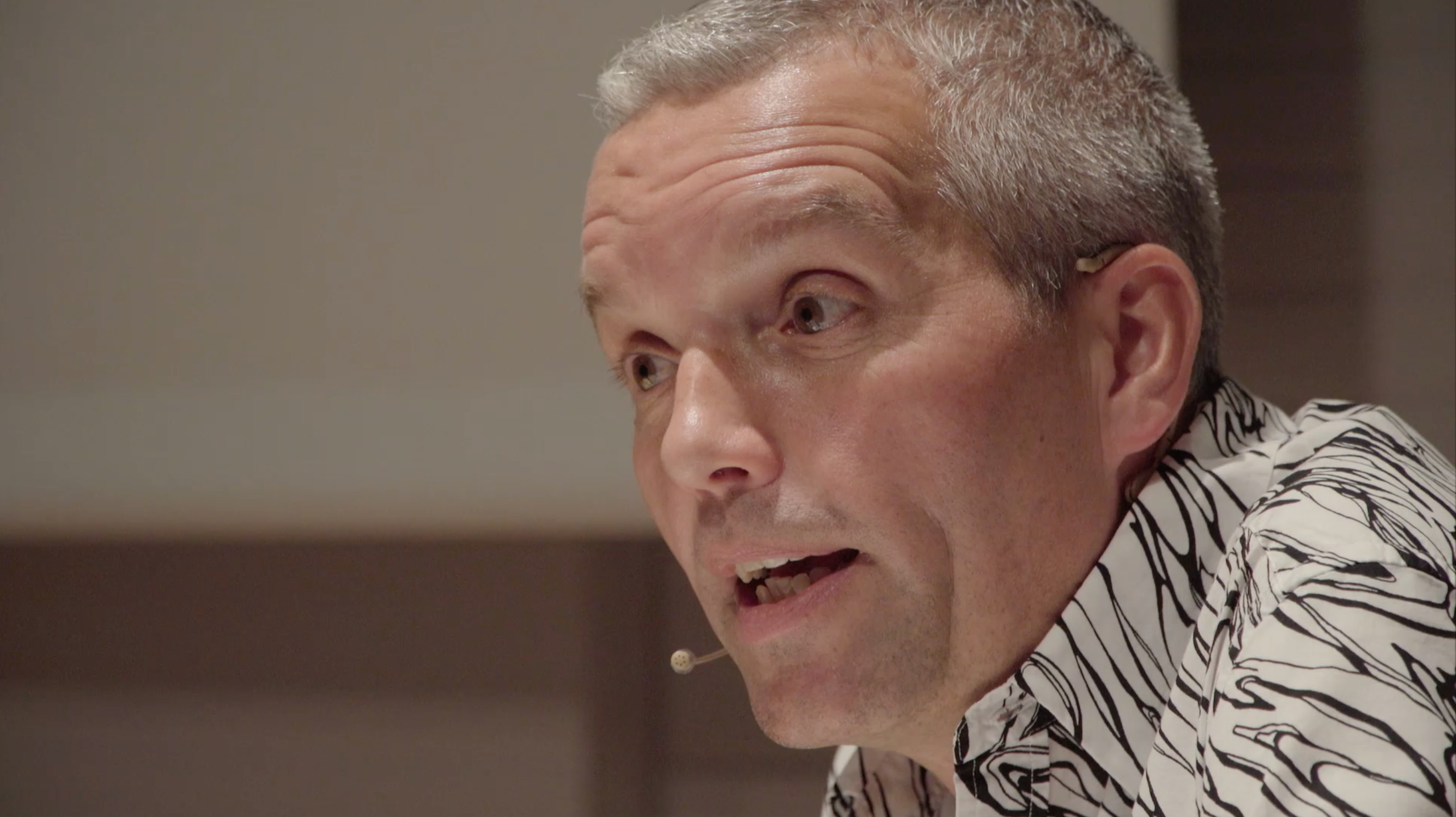
(click to view at KTH-play)
Hayden Lorimer is currently based at University of Glasgow, and later this year will join University of Edinburgh as Professor of Cultural Geography and Environmental Humanities. His research explores the geographical dimensions of a series of intersecting themes: landscape, place, fieldwork, ecology, memory, mobility, biography and the life of the senses. In an age of ecological breakdown, he is interested in the stories we tell ourselves, how we tell them, and the work that we make them do. In addition to academic publishing, Hayden has written and presented programmes for BBC radio.
Marietta Radomska, PhD, is a Postdoc at the Department of Thematic Studies (Gender Studies), Linköping University, SE, and at the Department of Cultures (Art History), University of Helsinki, FI. She is the co-director of The Posthumanities Hub; founder of The Eco- and Bioart Research Network, co-founder of International Network for ECOcritical and DECOlonial Studies and a founding member of Queer Death Studies Network. Her current research focuses on ecologies of death in the context of contemporary art. She is the author of the monograph Uncontainable Life: A Biophilosophy of Bioart (2016), and has published in Australian Feminist Studies, Somatechnics, and Angelaki, among others.
Cecilia Åsberg, PhD, is Guest Professor of STS, Gender and Environment at KTH Royal Institute of Technology in Stockholm 2018-2020, and since 2015 Professor of Gender, Nature, Culture at Linköping University. She is Founding Director of the Posthumanities Hub, and of the Seed Box: An Environmental Humanities Collaboratory, and associate editor of the journal Environmental Humanities (Duke University Press). Recent publications: “Feminist Posthumanities in the Anthropocene: Forays into the Postnatural” in Journal of Posthuman Studies; Animal Places – Lively Cartographies of Human-Animal Relations, (Routledge, eds with Jacob Bull and Tora Holmberg), and A Feminist Companion to the Posthumanities (Springer, ed with Rosi Braidotti).
Critical Intervention
Christine Daigle, Brock University, CA
Posthuman Methods as Radical Transformative Affirmation
[vimeo 364745129 w=640 h=564]
Christine Daigle is Director of the Posthumanism Research Institute and Posthumanism Research Network, and Professor of Philosophy at Brock University. She has published extensively on Nietzsche, Sartre, and Beauvoir. Her most recent research is in posthumanism, material feminism, and environmental posthumanities.
Panel 1 – moderator: Janna Holmstedt, KTH, SE
Sverker Sörlin, KTH, SE, Planetary Humanities,
Christina Fredengren, Stockholm University, SE, Garbage Nirvana – Or Deep Time Karma?
Hélène Frichot, KTH, SE, Architectural Environment – Worlds, Posthuman Landscapes
Hayden Lorimer, University of Glasgow, UK, (part of the panel conversation)
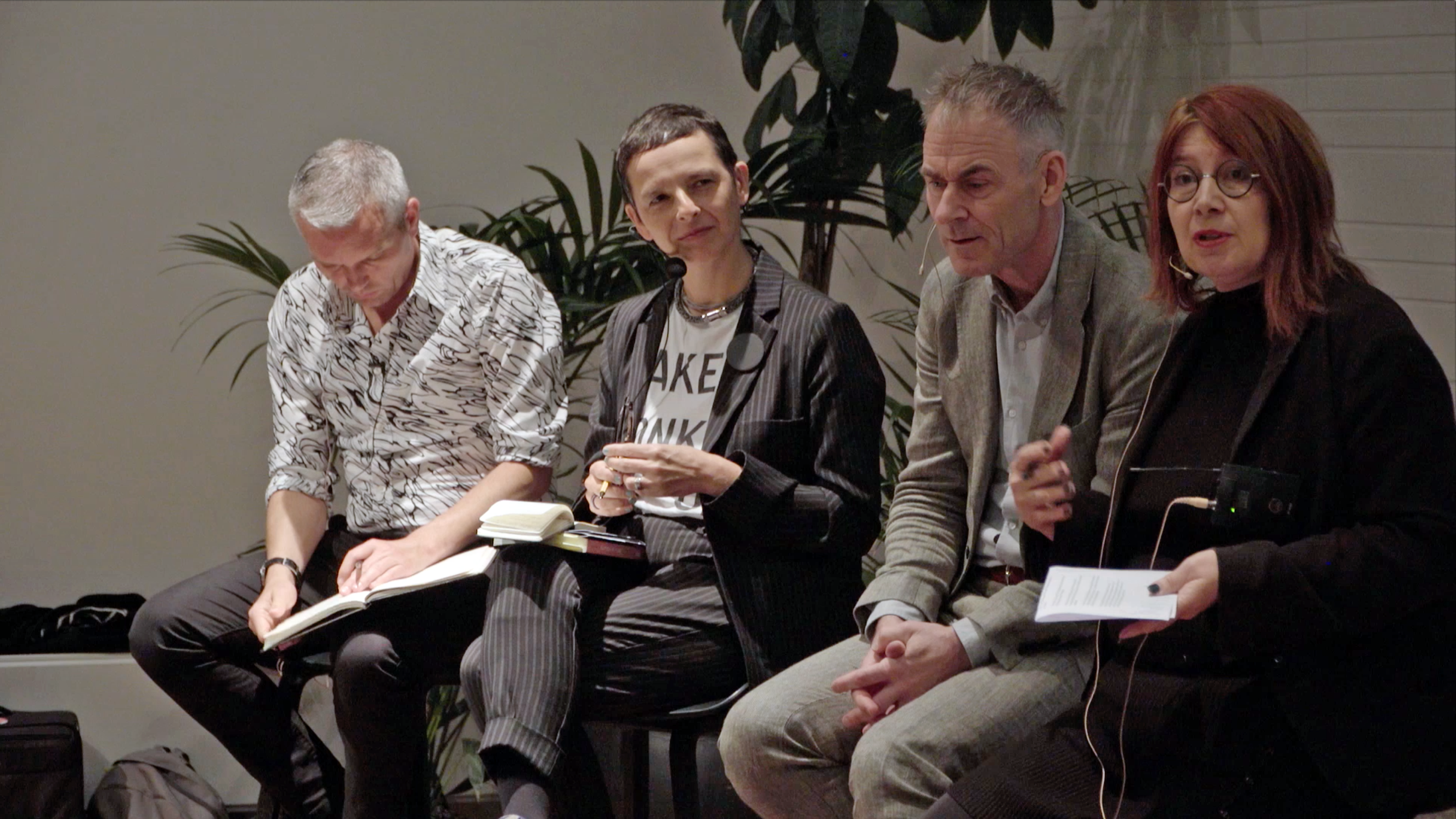
(click to view at KTH-play)
Sverker Sörlin is an historian and author. He holds a PhD in the History of Science and Ideas (1988) and has been Professor of Environmental History since 1993, first at Umeå University, at KTH since 2002. His current research interests encompass the history of the new human-earth relationship and the emergence of ‘the environment’ as a governable object through societal discourse, scientific practices, and ‘environing technologies’, a concept he started developing in 2011 in the context of starting the KTH Environmental Humanities Laboratory of which he was a co-founder. Recent books include The Future of Nature (Yale 2013) and The Environment — a History of the Idea (Johns Hopkins 2018), both with Libby Robin (ANU) and Paul Warde (Cambridge).
Christina Fredengren is Head of Research at the National Historical Museums in Sweden, with several international publications in archeology, feminist posthumanities, cultural heritage and environmental humanities, and Associate Professor/Researcher at the Archaeological Research Laboratory, Department of Archaeology and Classical Studies, Stockholm University. Heading the Stockholm University Environmental Humanities Research School and one of the founders of Stockholm University Environmental Humanities Network. Doctorate in Archaeology at Stockholm University 2002/3, Director at the Discovery Programme, Ireland’s Research Institute in Archaeology 2002-2007, key member of The Posthumanities Hub and the Seed Box: An Environmental Humanities Collaboratory, and Pi of research project Checking in with Deep Time (three-year funding from Formas- A Swedish Research Council for Sustainable Development) as well as Pi of Water of the Times (funded by the Swedish Science Council, Berit Wallenberg foundation).
Professor Hélène Frichot is the director of Critical Studies in Architecture, School of Architecture, KTH (Royal Institute of Technology) Stockholm, Sweden. Her research examines the transdisciplinary field between architecture and philosophy, with an emphasis on feminist theories and practices. In 2017 she was the recipient of a Riksbankens Jubileumsfond sabbatical grant, one outcome of which is Creative Ecologies: Theorizing the Practice of Architecture (Bloomsbury 2018). She is a co-editor of Architecture and Feminisms: Ecologies, Economies, Technologies (Routledge 2017); Deleuze and the City (EUP 2016), and Deleuze and Architecture (EUP 2013).
Panel 2 – moderator: Cecilia Åsberg
Postconventional Modes of Thinking and the Posthumanities, Margrit Shildrick, Stockholm University, SE
Revolutionary Humanities. Stories to change the world, Marco Armiero, KTH, SE
Anthropocene Historiography, Adam Wickberg, KTH, SE
minoritarian environmental arts & humanities: queer/feminist re(con)figurations of climate politics, mirko nikolić, independent artist, SE/FI
Ecologies of Death: Storytelling for the Anthropocene, Marietta Radomska, Linköping University, SE/University of Helsinki, FI
Between Earthworms and Satellites, Janna Holmstedt, KTH, SE
Science Needs Help, Myra Hird, Queen’s University, CA
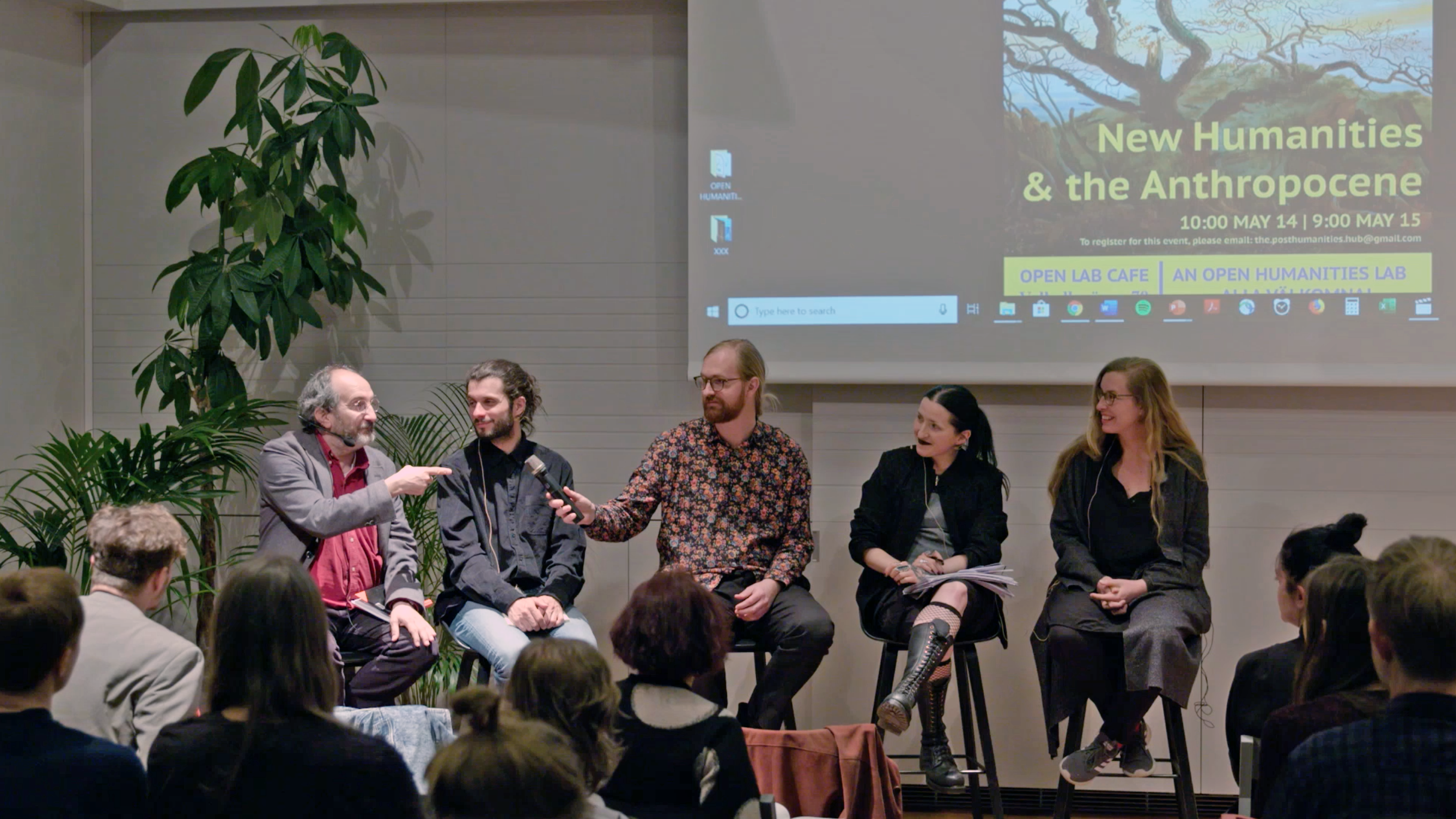
(klick to view at KTH-play)
Margrit Shildrick PhD is Guest Professor of Gender and Knowledge Production at Stockholm University, and a Fellow at the Helsinki Collegium for Advanced Studies. Her research covers postmodern feminist and cultural theory, bioethics, critical disability studies and body theory. Books include Leaky Bodies and Boundaries (1997), Embodying the Monster (2002) and Dangerous Discourses of Disability, Sexuality and Subjectivity (2009), as well as several edited collections and many journal articles. Most recently, she has been addressing the socio-political and embodied conjunction of microchimerism, immunology, corporeal anomaly and death.
Marco Armiero is the Director of the Environmental Humanities Laboratory at the KTH Royal Institute of Technology in Stockholm. His research focuses on toxic waste, migrations and environment, and climate change, the city, science, and power in ecological conflicts, and he works on environmental justice at global, local, and transnational scales. Armiero is the author of numerous articles, chapters, and books, including A Rugged Nation: Mountains and the Making of Modern Italy (2011), Environmental History of Modern Migrations (2017), Future Remains: A Cabinet of Curiosities for the Anthropocene (2018). Before moving to KTH, he has been post-doctoral fellow and visiting scholar at Yale University, UC Berkeley, Stanford, Autonomous University in Barcelona, and Coimbra.
Adam Wickberg is a Postdoctoral fellow in media history at the KTH Environmental Humanities Lab and a visiting scholar at the Max Planck Institute for History of Science in Berlin (MPWIG I). His project Plus Ultra studies the making of colonial environment through media. Central to the project are different kinds of environing media; surveys, illustrations, sketches, maps, descriptions and natural histories that were key to both knowledge production and the systematic large scale exploitation of the empire. Recent publications include Pellucid Paper: Poetry and Bureaucratic Media (Open Humanities Press 2018) and “Plus Ultra: Francisco Hernández and the Mapping of American Natureculture” in Necsus: European Journal of Media Studies (2018:2). An article on “Anthropocene Historiography: Coloniality, Media and Environment” is forthcoming in Resilience special issue on “Roots of the future” (2019:4).
Through performance and critical writing, mirko nikolić seeks to prefigure more just collaborations among different species and heterogeneous bodies. In recent projects, mirko has been working on counter-extractivist ontopolitics, multispecies commoning, performativity of vegetal touch, and unlearning of anthropocentric and capitalist survival ideologies. Their works have recently been exhibited at Art Sonje, Seoul; SIC Gallery, Helsinki; KC Grad, Belgrade; P3 Ambika, London. Currently they are dedicated to co-constructing a place-based radio platform entangling forest, mineral and human modes of being in North-East Finland and beyond. mirko holds a PhD in Arts & Media Practice from the University of Westminster, London.
Marietta Radomska, PhD, is a Postdoc at the Department of Thematic Studies (Gender Studies), Linköping University, SE, and at the Department of Cultures (Art History), University of Helsinki, FI. She is the co-director of The Posthumanities Hub; founder of The Eco- and Bioart Research Network, co-founder of International Network for ECOcritical and DECOlonial Studies and a founding member of Queer Death Studies Network. Her current research focuses on ecologies of death in the context of contemporary art. She is the author of the monograph Uncontainable Life: A Biophilosophy of Bioart (2016), and has published in Australian Feminist Studies, Somatechnics, and Angelaki, among others.
Janna Holmstedt, PhD, is an artist and researcher based in Stockholm. She works transdisciplinarily with various media and contexts, ranging between installation, sonic fiction, text, and performance with a particular interest in listening, storying and situated practices. She explores entangled issues such as multispecies relations, interspecies communication, and the intra-action of bodies, environs and technology. Her doctoral work focused on how sound and listening, in a visually dominated culture, could mediate new relationships with the more-than-human. It departed from the archival material of American neurophysiologist John C. Lilly, who in the 1950s and 1960s conducted controversial scientific communication experiments with dolphins. Her current work focuses on soil care and soil as multispecies activity zone. Holmstedt is a researcher at the Posthumanities Hub and research engineer at the Division of History of Science, Technology and Environment at KTH. She is also a member of Fylkingen, an international artist-run venue and association for new music and intermedia art in Stockholm. http://jannaholmstedt.com
Myra J. Hird is Professor, Fellow of the Royal Society of Canada, and Queen’s National Scholar in the School of Environmental Studies, Queen’s University (www.myrahird.com). Professor Hird is Director of Waste Flow, an interdisciplinary research project focused on waste as a global scientific-technical and socio-ethical issue (www.wasteflow.ca). Hird has published nine books and over seventy articles and book chapters on a diversity of topics relating to science studies.
Panel 3 – moderator: Marietta Radomska
People of the Climate, Matthew Fuller, Goldsmiths, UK
The Public as Co-storytellers of Environmental Humanities, Lotten Wiklund, journalist and science communicator, SE
Existential Media Studies is a New Humanism: Reinventing ‘the Human’ as Co-exister in Terrains of Shared Environmental and Technological Vulnerability and Anticipation, Amanda Lagerkvist, Uppsala University, SE
Educational Imaginaries of Technology, Lina Rahm, Linköping University, SE
Rehearsals for 8 ~ X, Katja Aglert, independent artist and researcher, SE
Concrete Islands and Post-Arcadian Knowledge Work (In the Lab, Perhaps), Jesper Olsson, Linköping University, SE
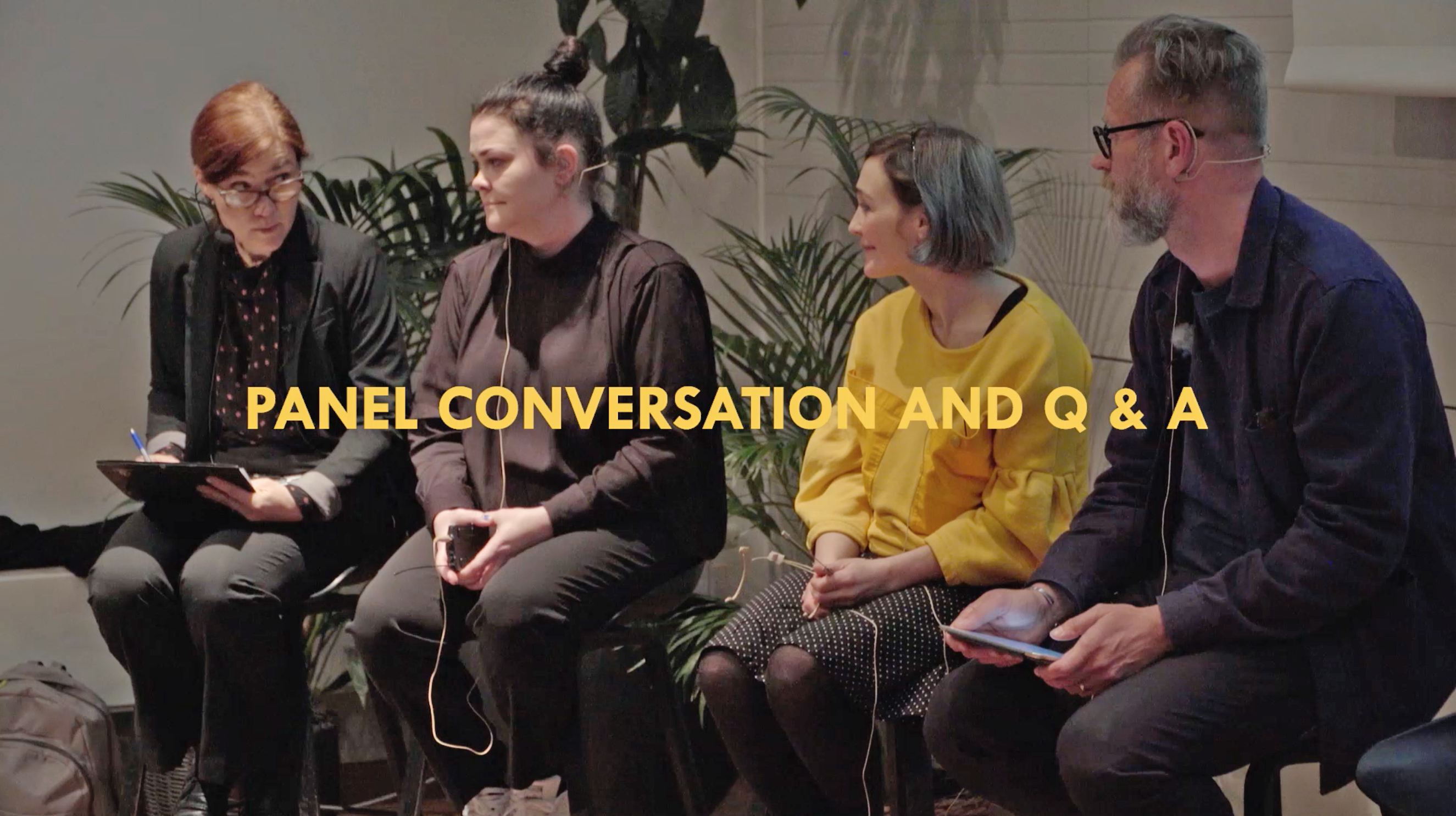
(klick to open at KTH-play)
Matthew Fuller is the author of How to Sleep, the art, biology and culture of unconsciousness, (Bloomsbury). Other titles include How to be a Geek, essays on the culture of software (Polity), Media Ecologies, materialist energies in art and technoculture (MIT), Behind the Blip, essays on the culture of software, Elephant & Castle (both Autonomedia) and ATM (Shake Editions). With Andrew Goffey he is co-author of Evil Media (MIT) and with Olga Goriunova of the forthcoming, Bleak Joys, aesthetics of ecology and impossibility (Minnesota U.P.). He has worked in and with artists groups such as I/O/D, Mongrel and YoHa as well as independently. Recently, with Shu Lea Cheang, he has curated the events SLEEP48 (Linz) and SLEEP79 (Taipei). Fuller is editor of books including Software Studies, a lexicon (MIT), and is a co-editor of the journal Computational Culture http://www.computationalculture.net. He is Professor of Cultural Studies at Goldsmiths, University of London.
Lotten Wiklund is educated at Stockholm University and has been working as a science journalist, editor and science communicator since early 2000, mainly focusing on the ever-shifting relation between science/technology and human self-understanding. Among other things she is the author of the book ‘Du sköna nya människa; om smarta proteser, odlade organ och kärleksfulla robotar’ and director of the short documentary ‘Ström i hjärnan’. Currently she runs the Posthumanities Hub-project Popularizing Environmental Humanities where students at Bromma gymnasium in Stockholm are storying climate change and environmental issues by creating their own digital narratives with the inspiration from environmental humanities. The project can be followed on website pophum.wordpress.com. Some of Lotten Wiklunds writings can be found on www.kajman.se
Amanda Lagerkvist is a media phenomenologist and a founder of existential media studies. Her work focuses on the broader merits of existential philosophy for media studies in the context of digital death and the automation of the lifeworld. Theorizing digital-human and techno-environmental vulnerability she pursues a co-existentialist virtue ethics of care and responsibility. She chairs the interdisciplinary research network DIGMEX (cf. ”Digital Existence: Memory, Meaning Vulnerability”: http://et.ims.su.se/files/Program-Digital-Existence.pdf and ”Digital Existence II: Precarious Media Life”: Digital_Existence2_2017.pdf) and is the editor of Digital Existence: Ontology, Ethics and Transcendence in Digital Culture (Routledge 2019, with a foreword by John D. Peters). Her forthcoming book Existential Media is contracted with OUP. Dr. Lagerkvist is Associate Professor of Media and Communication Studies and Research Fellow in the Department of Informatics and Media at Uppsala University.
Lina Rahm, PhD, is a postdoctoral researcher at the Dept. of Behavioural Sciences and Learning at Linköping University, Sweden. She holds a BSSc in Gender Studies, an MSSc. in Social and Welfare Studies and is currently researching educational imaginaries of artificial intelligence and automated systems.
Katja Aglert is a Stockholm based independent artist and researcher whose practice – situated in feminist, more-than-human imaginaries – is transdisciplinary in nature, and includes both individual and collaborative projects. Currently she examines artistically through hybrid forms of storytelling how we through the experiences of multi-beings-encounters can investigate what it can mean to materialise perspectives beyond the human-centred narratives. She exhibited widely, including venues such as Marabouparken and Biologiska Museet, Stockholm (SE); Solyanka State Gallery, Moscow (RU); Polarmuseet, Tromsø (NO); Fotografisk center, Copenhagen (DK); FLORA ars+natura, Bogota (COL); Museum for Contemporary Art, Santiago (CHL). She is an executive board member of The Seed Box, an international environmental humanities collaboratory headquartered at Linköping University. She teaches regularly at Umeå Art Academy, and Konstfack University of Arts, Crafts, and Design. katjaaglert.com
Jesper Olsson is Professor in Language and Culture (with a focus on Literature and Media History) at Linköping University and director of the research program The Seed Box. A Mistra-Formas Environmental Humanities Collaboratory. His latest book is Spaceship, Time Machine. Öyvind Fahlström’s Ade-Ledic-Nander (2017)
15 May, 2019, 9:00-12:00
Keynote and Q&A
Norie Neumark, Melbourne University, AU
Minor gestures: politics, ethics, and grappling with the world (mess) through art
Moderator: Cecilia Åsberg
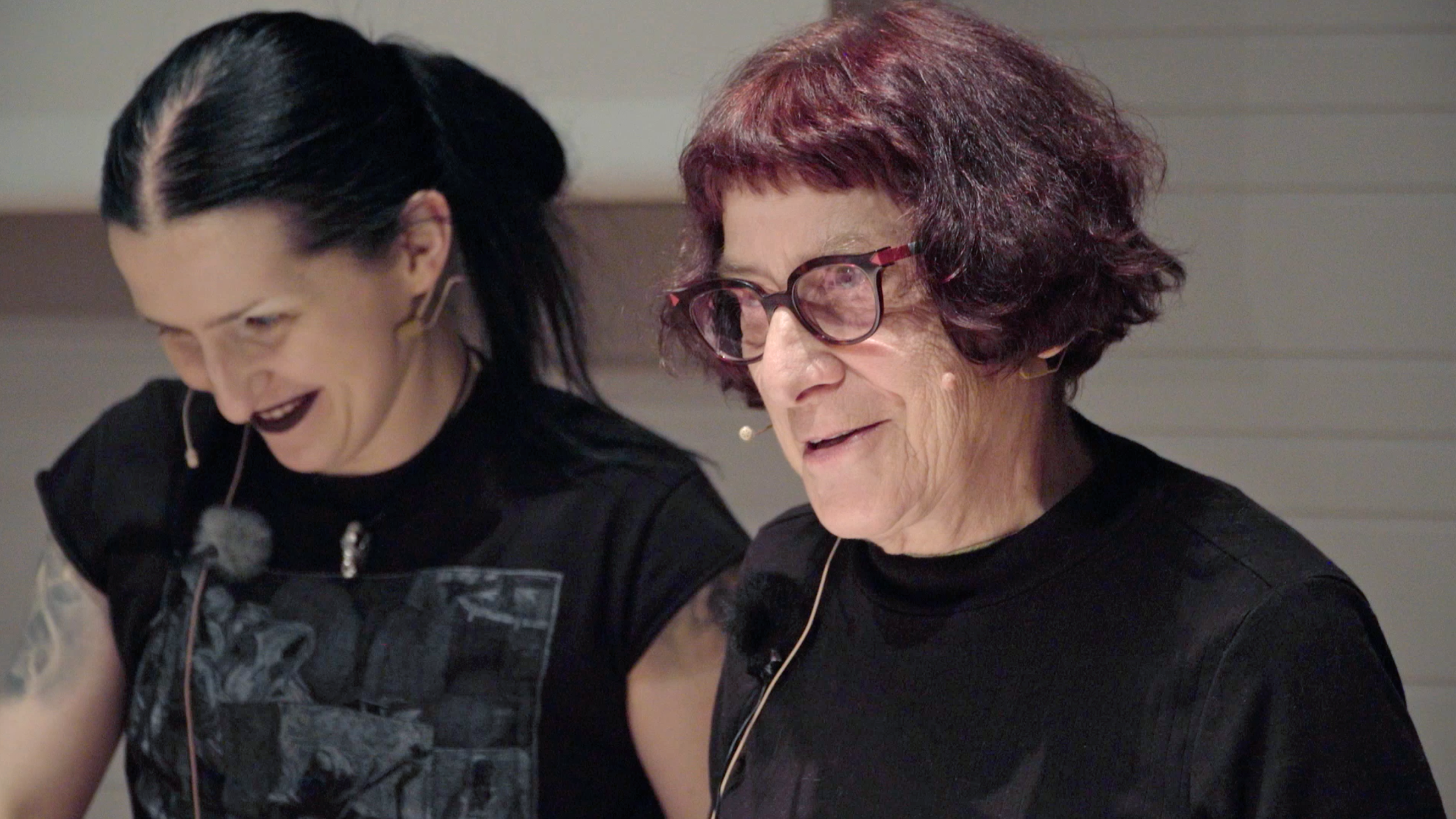
(klick to view at KTH-play)
Norie Neumark is Honorary Professorial Fellow at Victorian College of the Arts, Melbourne University and Emeritus Professor, La Trobe University. She is currently resident artist at Titanik, Turku. She is a theorist and sound/media artist. She has a collaborative art practice with Maria Miranda as www.out-of-sync.com, which began in radio, then expanded to include media art, site-responsive and unsitely installations and performances. Their award-winning work has been commissioned and broadcast and exhibited nationally and internationally. Their earlier work engaged with questions of culture, place and memory. Recent projects, such as Waiting, Coalface, and Shredded, have engaged with new materialist questions of working with animals, ecology, power and ethics. Norie’s 2017 monograph, Voicetracks: Attuning to Voice in Media and the Arts (MIT Press) explores voice and new materialism. Norie co-edited Voice: Vocal Aesthetics in Digital Arts and Media (MIT Press, 2010) and At a Distance: Precursors to Internet Art and Activism (MIT Press, 2005). She is founding editor, Unlikely: Journal for Creative Arts http://unlikely.net.au
Critical Intervention
Rosi Braidotti, Utrecht University, NL
[vimeo 363441920 w=640 h=360]
Rosi Braidotti is Distinguished University Professor and founding Director of the Centre for the Humanities at Utrecht University. She was the Founding Professor of Gender Studies in the Humanities at Utrecht (1988-2005) and the first scientific director of the Netherlands Research School of Women’s Studies. Website: https://rosibraidotti.com/
Panel 4 – moderator: Marietta Radomska
Speculatively Poeticizing as Critical-Affirmative, Posthuman Methodology, Nina Lykke, Linköping University, SE
Contemporary Arts and the New Humanities, Daniel Urey, Färgfabriken, SE
Corpse, Pollen, Mites and Bodies Falling Apart: On Rethinking Body/Self as a Contact Zone, Tara Mehrabi, Karlstad University, SE
Plants and People: Some Reflections on Collaborative and Citizen Humanities, Lauren LaFauci, Linköping University, SE
Planetary Arts for the Anthropocene, Cecilia Åsberg, KTH, SE/Linköping University, SE
(Part of the panel conversation) Norie Neumark, Melbourne University, AU
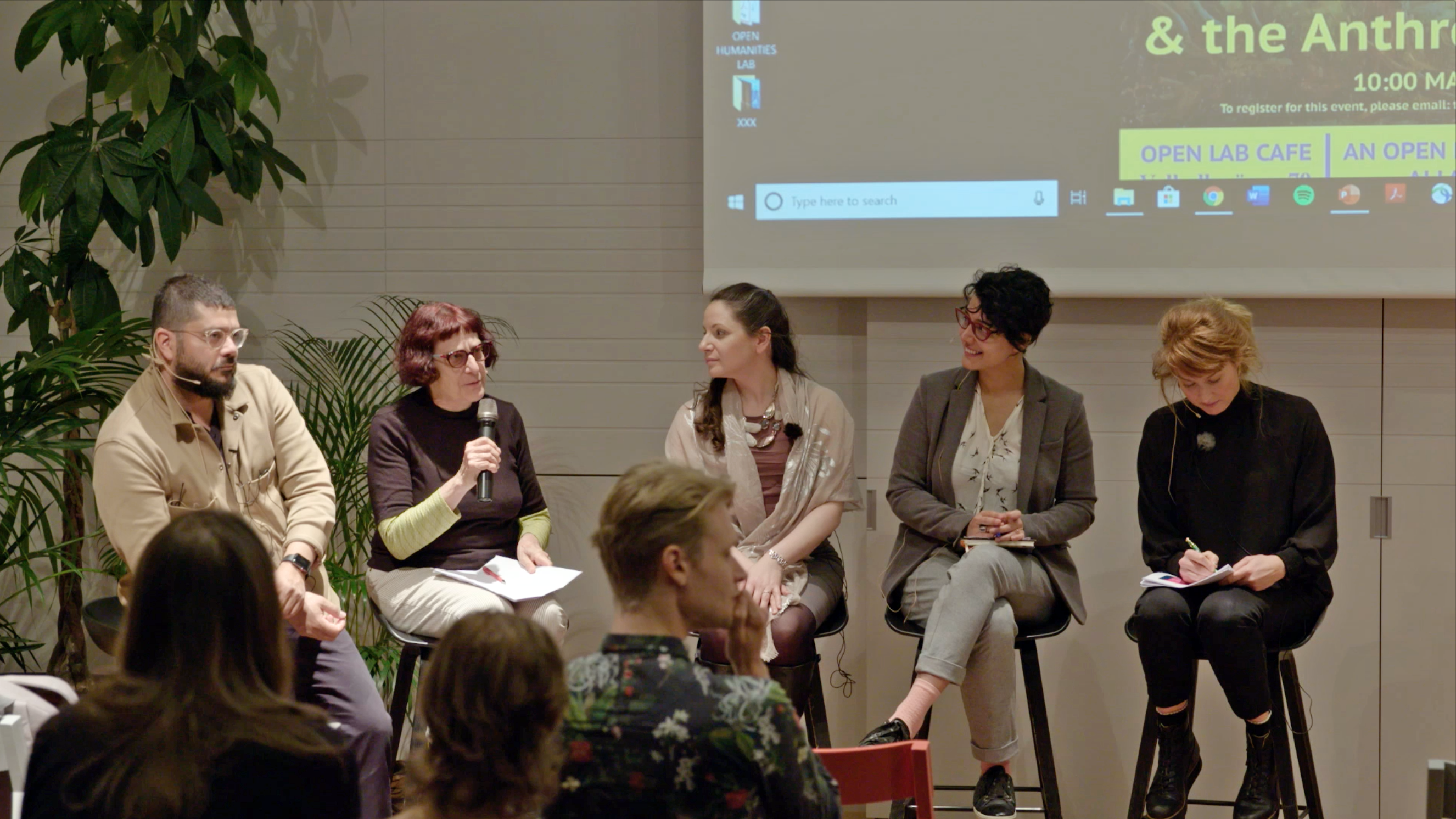
(klick to view at KTH-play)
Nina Lykke, Professor Emerita, Gender Studies, Linköping University, Sweden. Co-founder of Queer Death Studies Network, and The International Network for ECOcritical and DECOlonial Research. Current research: queering of cancer, death, and mourning in queerfeminist materialist, decolonial and eco-critical perspectives; autophenomenographic and poetic writing. Recent publications: Queer Widowhood. Lambda Nordica. 2015:4; Academic Feminisms: Between Disidentification, Messy Everyday Utopianism, and Cruel Optimism. Feminist Encounters. 2017:1(1); When death cuts apart, in: Juvonen & Kohlemainen: Affective Inequalities in Intimate Relationships. Routledge, New York 2018; Rethinking socialist and Marxist legacies in feminist imaginaries of protest from postsocialist perspectives. Social Identities. Journal for the Study of Race, Nation and Culture. 2018:24 (2). Website: https://ninalykke.net
Daniel Urey has a background in political science and has been working at Färgfabriken since 2013, managing international programs, including “New Urban Topologies”, “Baltic Dimensions” and “Patchwork of Narratives”, which are dealing with issues of democracy, urban development and intercultural dialogue. Urey has an extensive cross-sectorial network, both in Sweden and internationally.
Tara Mehrabi, PhD, is a Lecturer at the Centre for Gender Studies, Karlstad University (Sweden). She is a feminist technoscience studies scholar who is interested in the intersection of gender studies, medical humanities and environmental humanities. She is a founding member of Queer Death Studies Network and a member of The Posthumanities Hub. Meharbi is the author of the monograph Making Death Matter: A Feminist Technoscience Study of Alzheimer’s Sciences in the Laboratory (2016). She has published in anthologies such as Animal Places. Lively Cartographies of Human Animal Relations, (eds.) by J. Bull, T. Holmberg & C. Åsberg, Routledge (2018), Gendering Drugs: feminist studies of pharmaceuticals, (ed.) by E. Johnson, Palgrave (2017) and journal Gender, Women & Research (2018). Website: https://taramehrabi.wordpress.com/
Lauren LaFauci is assistant professor of environmental humanities in the Unit of Gender Studies, Department of Thematic Studies at Linköping University in Sweden, where she also directs the “Multispecies Stories” research area of the Seed Box Environmental Humanities Collaboratory and serves as an international liaison for ASLE, the Association for the Study of Literature and Environment. She is part of the interdisciplinary team behind the citizen humanities website, Herbaria 3.0 (www.herbaria3.org), which collects stories about the intertwined relationships between plants and people. Her research and teaching are wide-ranging, focusing on histories of racial formation, medicine, and the body; US literature, history, and culture from to 1900; Scandinavian cultural studies; and multispecies story-telling.
Cecilia Åsberg, PhD, is Guest Professor of STS, Gender and Environment at KTH Royal Institute of Technology in Stockholm 2018-2020, and since 2015 Professor of Gender, Nature, Culture at Linköping University. She is Founding Director of the Posthumanities Hub, and of the Seed Box: An Environmental Humanities Collaboratory, and associate editor of the journal Environmental Humanities (Duke University Press). Recent publications: “Feminist Posthumanities in the Anthropocene: Forays into the Postnatural” in Journal of Posthuman Studies; Animal Places – Lively Cartographies of Human-Animal Relations, (Routledge, eds with Jacob Bull and Tora Holmberg), and A Feminist Companion to the Posthumanities (Springer, ed with Rosi Braidotti).
Thanks to:
Seed Box (Mistra and Formas)
Division of History of Science, Technology and Environment, KTH
Karin Wegsjö Produktion AB for the Posthumanities Hub, KTH
Camera and editing: Karin Wegsjö and Abram Wiklund
Art work: The Tree of Crows, 1822 by Caspar David Friedrich (original: oil on canvas, Paris, Musée du Louvre)
© 2019 KTH Royal Institute of Technology